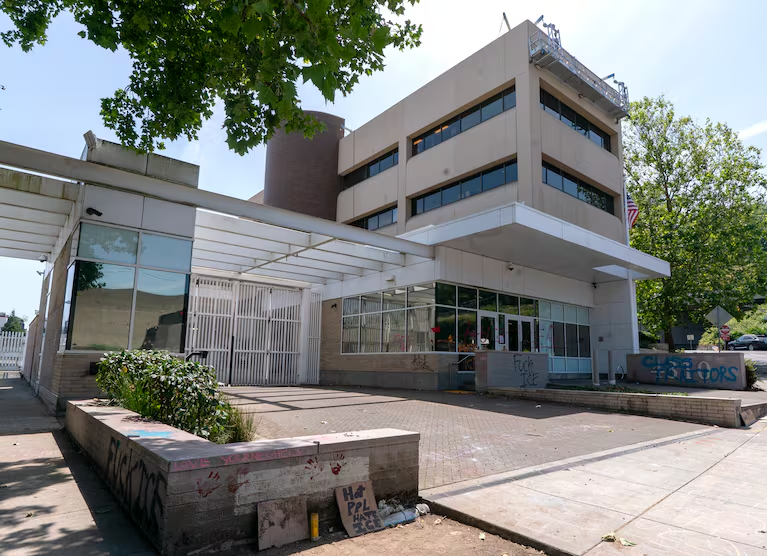The owner of the South Portland property housing the U.S. Immigration and Customs Enforcement (ICE) office has accused city officials of politically motivated retaliation, claiming they are punishing him for leasing space to the federal agency.
Legal Challenge Over Land Use Violation
Stuart Lindquist, the property owner, is contesting the city’s claim that he violated a 2011 land use agreement. The agreement prohibits ICE from holding detainees in the building for more than 12 hours or overnight. According to city officials, ICE breached that rule at least 25 times in the past year.
Under Portland’s zoning rules, Lindquist was given 30 days to correct the violation. That deadline has passed, exposing him to potential fines of nearly $950 per month — a figure that could double if the issue remains unresolved after three months. Although the city has not yet imposed any penalties, Lindquist has formally requested an administrative review through the city’s Permitting and Development Department.
Also Read
This review process allows property owners to challenge violation notices privately before city officials. The meeting is expected to take place in early November.
Owner Claims Political Retaliation
In an Oct. 14 letter to the city, Lindquist’s attorneys, Thomas Rask and Wendi Kellington, argued that the city’s enforcement actions are politically driven. They claim Lindquist is being punished for associating with a federal agency that many local residents and leaders oppose.
“Respondent’s decision to lease space to ICE is itself protected political expression and association,” the attorneys wrote, calling the city’s actions “unlawful selective enforcement with a clear discriminatory motive and unlawful political retaliation.”
Political Context and Protests
The ICE facility has long been a flashpoint for local protests against federal immigration policies, particularly during and after the Trump administration. Demonstrations at the building have been largely peaceful but persistent, reflecting Portland’s broader resistance to federal immigration enforcement.
Mayor Keith Wilson issued the violation notice before former President Trump announced plans to deploy the Oregon National Guard to protect the ICE facility from protesters. However, the city’s move followed growing public pressure from residents demanding that Portland revoke the facility’s land use agreement in protest of ICE’s presence.
Social Media Posts Raise Concerns
Lindquist’s attorneys cite several social media posts by city officials as evidence of political bias. They included screenshots from the city’s official Facebook account showing Mayor Wilson marching with Governor Tina Kotek during a Sept. 28 protest against Trump’s proposed troop deployment. Some images featured protest signs calling for “ICE out of Portland.”
The attorneys also criticized City Councilor Angelita Morillo for her online comments opposing ICE. They pointed to a proposal she floated to fine property owners who lease to detention facilities — calling it an unconstitutional, “viewpoint-targeted burden” meant to deter business with ICE.
Dispute Over Data and Evidence
The city’s accusation that ICE held detainees beyond the 12-hour limit was based on data from the Deportation Data Project, a nonprofit that gathers public records on immigration enforcement. Lindquist’s attorneys disputed the reliability of that data, claiming it was “manipulated” and incomplete.
They argued that the evidence does not meet legal standards for enforcement, writing that “the City’s [violation] must be dismissed because it has no evidentiary foundation.”
Broader Legal Implications
The 12-hour detention limit has appeared in other legal disputes involving ICE’s operations in Portland. Recently, attorneys representing farmworkers and a nonprofit legal clinic sued ICE, alleging detainees were being moved out of Oregon before meeting with lawyers. Federal attorneys responded that the transfers were partly due to the time restrictions imposed by Portland’s zoning rules.
What Comes Next
Lindquist has until Oct. 31 to submit additional documentation to support his appeal before the scheduled administrative review in November. Depending on the outcome, the case could advance to the city hearings office and potentially to the Multnomah County Circuit Court if either side appeals the decision.
As the dispute unfolds, it raises larger questions about the intersection of local governance, political expression, and federal immigration enforcement — and whether Portland’s land use rules are being applied fairly or shaped by political opposition to ICE.












